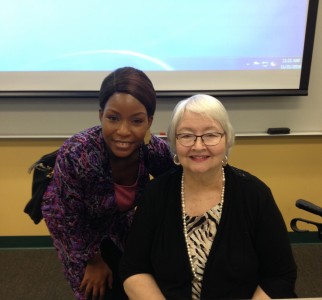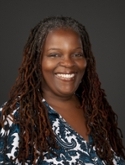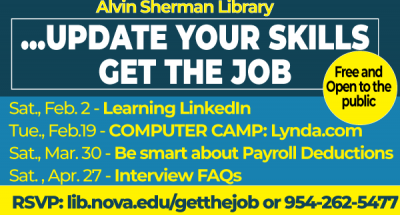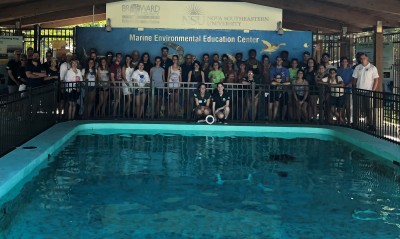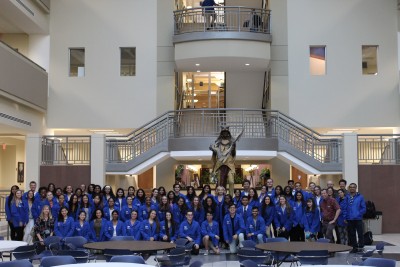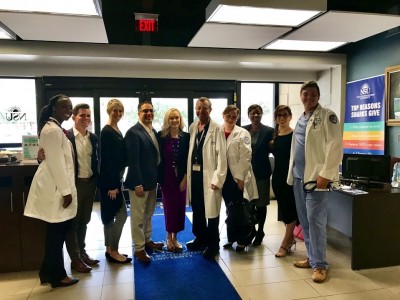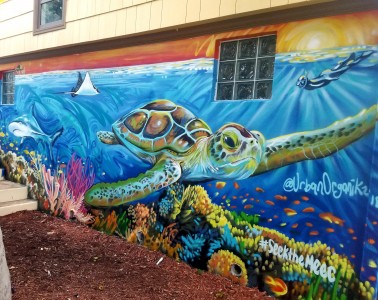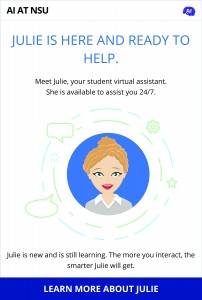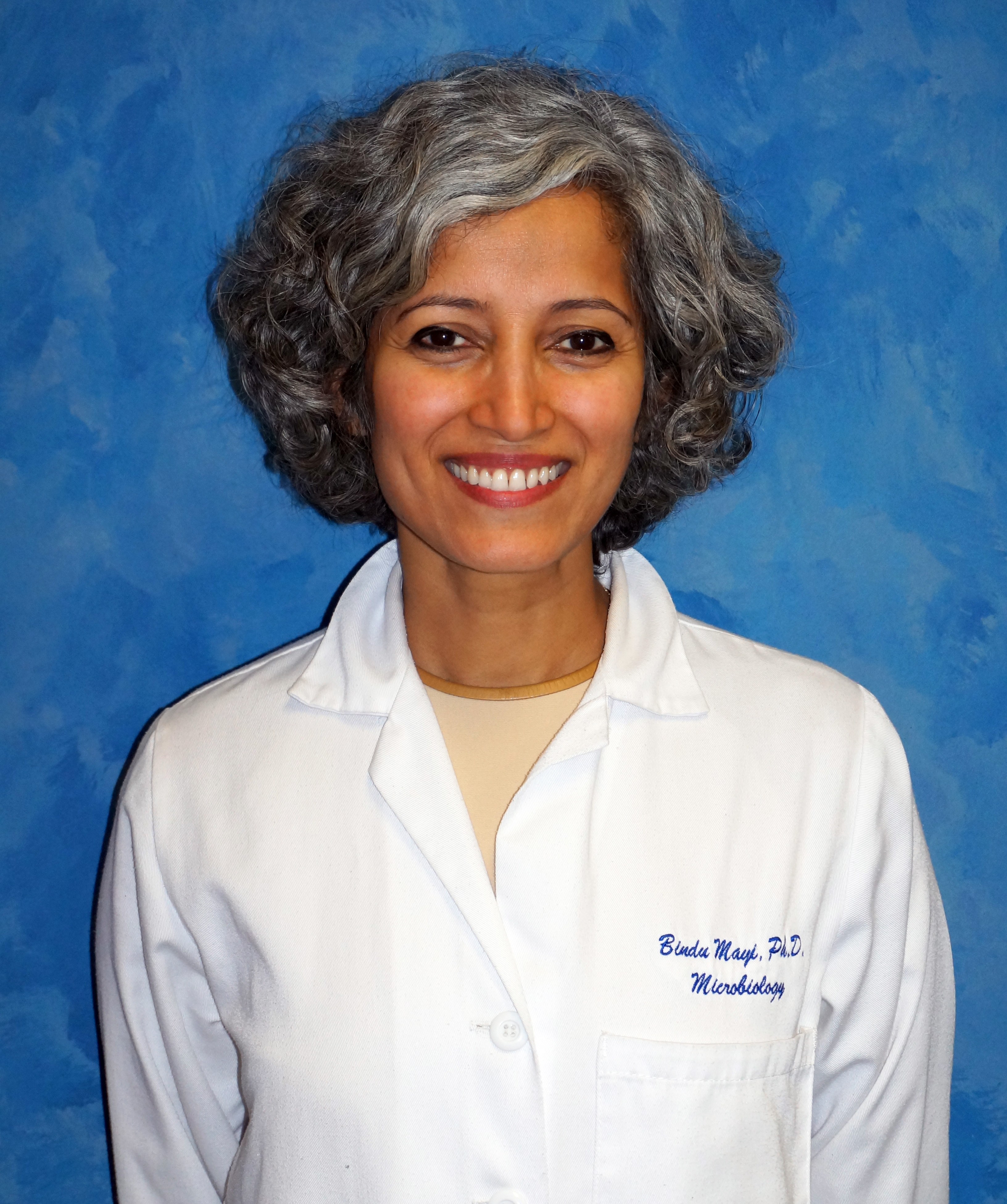
Bindu S. Mayi, M.Sc., Ph.D., professor of microbiology at NSU’s College of Medical Sciences
Bindu S. Mayi, M.Sc., Ph.D., professor of microbiology at NSU’s College of Medical Sciences educates people Influenza and Meningitis.
On December 28, 2018, Bre Payton, a 26 year old political journalist, died of what appears to be H1N1 influenza (aka flu) and meningitis, two completely different infections. For information onFlu vaccines and flu prevention, click HERE to be redirected to the October 2018 Sharkbytes article. At this time, we don’t know whether Bre Payton received the Flu vaccine, which has an average efficacy of 40 – 60%. Getting vaccinated reduces the risk of flu, as well as the severity of flu. It is ideal to use vaccines in conjunction with the additional layers of protection provided by basic infection prevention (addressed below).
Bre Payton’s age put her in the young adult category: 18 – 35 years of age. Although there are several bacteria as well as viruses that can cause meningitis, bacteria such as Streptococcus pneumoniae (aka pneumococci) and Neisseria meningitidis (aka meningococci) are the usual suspects in young adults.
Pneumococci cause more than half of the bacterial meningitis cases in the United States. There are two FDA approved pneumococcal vaccines, both of which offer a strong fighting chance against this infection:
[A] Prevnar 13®, given to (1) babies at 2, 4, 6, and 12 – 15 months of age, (2) certain immunocompromised individuals 18 – 49 years of age (conditions include, but are not limited to, chronic renal failure, lack of a spleen, cerebrospinal fluid leaks, or individuals with cochlear implants who have not previously received any pneumococcal vaccines), and (3) individuals 65 years of age and older.
[B] Pneumovax 23® is indicated for individuals 65 years of age and older.
At highest risk of pneumococcal meningitis are adults 65 years of age, and children under 6 months of age, with children 6 – 23 months of age at increased risk for the first two months after enrollment in day care. Adults between the ages of 19 and 64 are also at increased risk if they have the following conditions: chronic illnesses such as cystic fibrosis, chronic obstructive lung disease, emphysema, asthma, diabetes, or alcoholism; weakened immune systems due to cancer, HIV infection, or damaged or absent spleen; cochlear implants; cerebrospinal fluid leaks; and/or are cigarette smokers.
Patients with pneumococcal meningitis usually have a severe and generalized headache and at least one of the classic trio of symptoms for bacterial meningitis: fever (mostly high, but sometimes lower than normal), stiffness of the neck, and altered mental status, manifesting as confusion or lethargy.
Meningococcal diagnosis on the other hand, can be a bit tricky. This is concerning, since meningococcal meningitis can progress rapidly and cause death in just hours. Unfortunately, the clinical features that alert you to meningococcal disease only appear later in the illness. By this time, it may already either be too late to save the patient, as perhaps in the case of Bre Payton, or too late to avoid severe neurologic deficits in survivors. To even ask for diagnostic tests, you need a high degree of suspicion. The healthcare provider needs to perform a careful investigation of clinical signs after the patient is fully undressed. Clinical symptoms include a sudden onset of fever, nausea, vomiting, headache, decreased ability to focus and concentrate, and muscle aches in an otherwise healthy patient. Most of these symptoms may also be seen in someone with flu. At this time, we are not aware of the exact symptoms experienced by Bre Payton prior to her tragic demise, but it is unfortunate that she seems to have had the flu as well, which would have obscured the urgency of her symptoms for a meningitis diagnosis.
Are there any tell tale symptoms of meningococcal meningitis? Yes. Tiny, hemorrhagic spots aka petechiae, which first show up in places where belts and elastic straps may apply pressure, such as in the waistband, where trousers or underclothes fit a little snugly. If not diagnosed and treated with antibiotics immediately, these petechiae can worsen and ultimately result in death of the patient within just hours of onset of symptoms.
We do have several FDA approved vaccines that protect us from 5 of the most common meningococcal groups that cause infections. The CDC recommends these vaccines for: (1) all children under 5 years of age; (2) all preteens and teens; (3) young adults like Bre Payton (18 – 35 years); (4) people living in college dorms, military units etc. – these are individuals who are in close contact with each other; and (5) individuals 2 months and older if they have weakened immune systems, or are going to travel to the meningitis belt in sub-Saharan Africa, a place at high risk of meningococcal meningitis.
How can we avoid meningitis?
In my opinion, the best protection for our young people and for all of us really, is specific immunologic protection (elicited by vaccines, when available) together with basic infection prevention. Both pneumococci and meningococci are spread during coughing, sneezing and kissing. Thankfully, these bacteria are not spread by casual contact. In addition, people are at risk of meningococci if they live in the same household (college dorm, military unit or similar confined spaces) as people sick with meningitis, or people who carry these bacteria without being sick. Engaging in basic infection prevention will help us fight many infections and not just flu or meningitis. We have to take an active role and do our part to raise our awareness of, and advocacy for environmental cleanliness; adequate hand hygiene; coughing and sneezing into a tissue (and not into the air); limiting *close contact or **lengthy contact with sick people, unless you can avoid it altogether; staying home when sick, or at the very least, wearing a facemask if you have to be at work or in school; hydrating well; eating nutritious food; exercising regularly; and refraining from smoking.
*Close contact is being within six feet of a sick person.
**Lengthy contact is being in the same room for a prolonged period of time.

